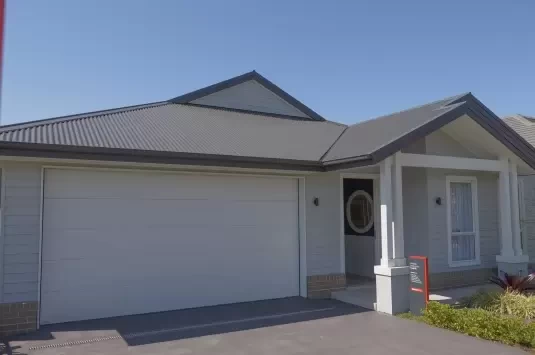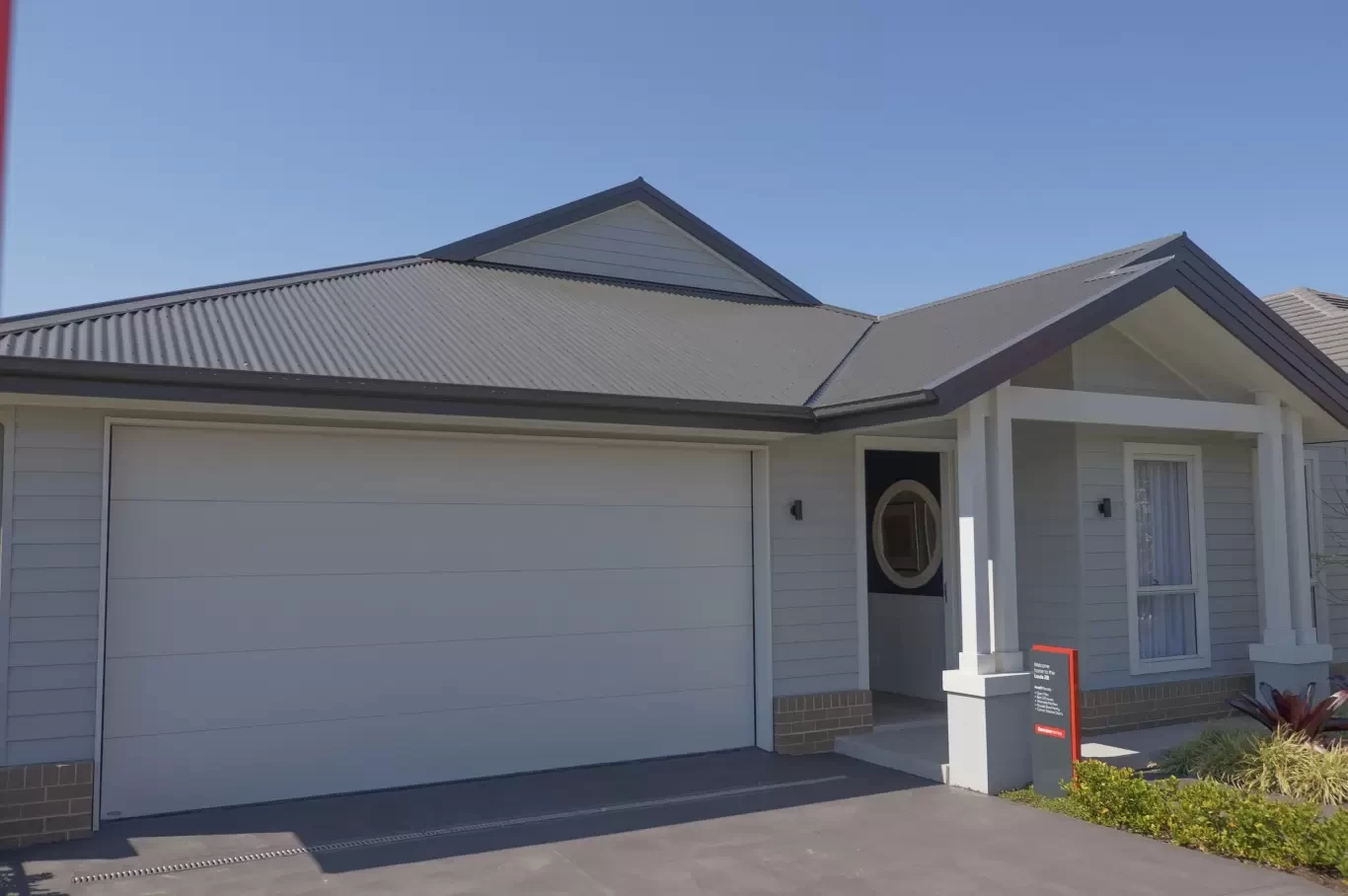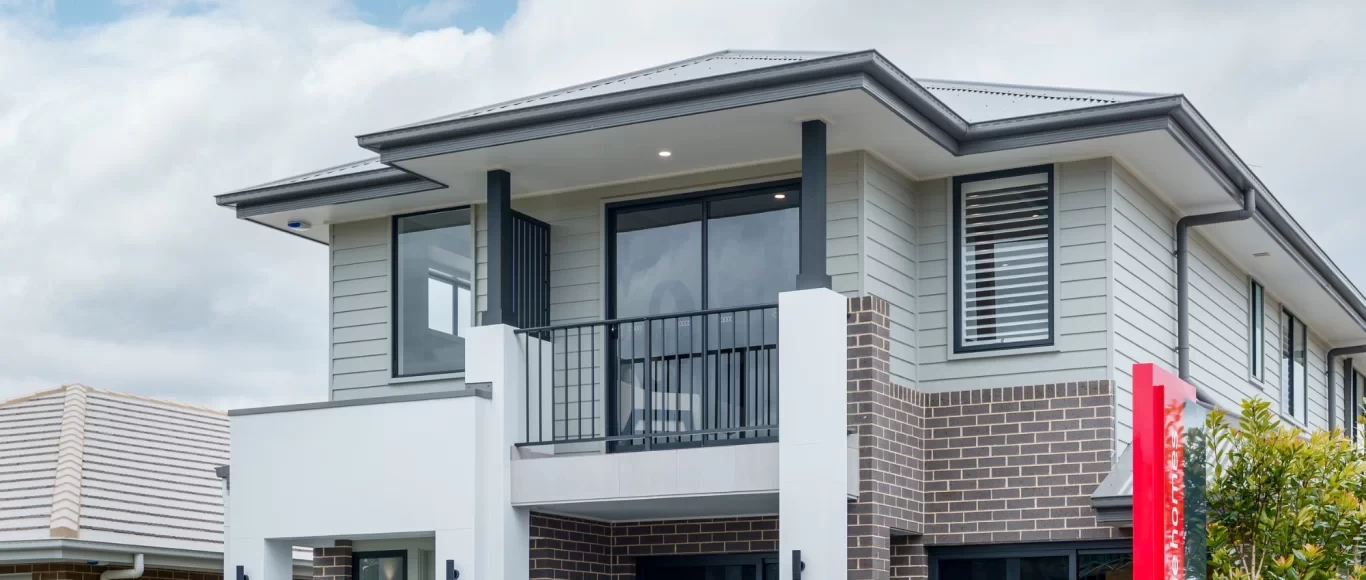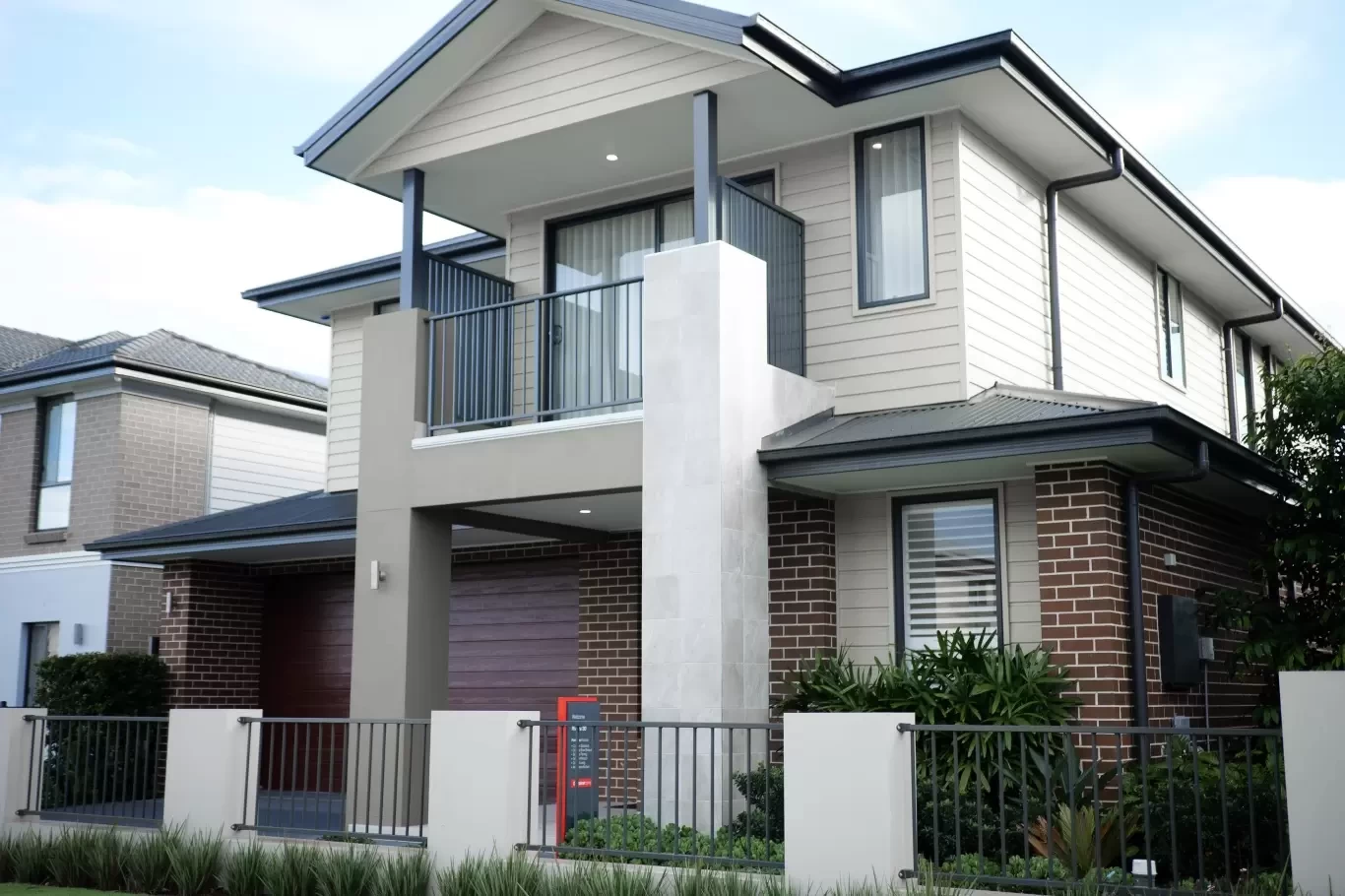Planning to demolish a house in NSW? The cost question is likely at the top of your priority list. House demolition in New South Wales typically ranges from $15,000 to $40,000, an investment that absolutely requires efficient planning and strategy.
Demolish A House in New South Wales: Expert Cost Breakdown
The price variation isn't random. A small fibro cottage might cost just $12,000 to remove, while a large brick home on a sloped block could reach $45,000 or more. Your location plays a crucial role too, Sydney metro areas generally command premium rates compared to regional NSW areas.
What you might not realise is that nearly 40% of demolition costs often come from hidden expenses. These include council permits, disconnection fees, and hazardous material removal. We've seen cases where Sydney homeowners faced an additional $8,000 bill when unexpected asbestos was discovered during what seemed like a straightforward demolition project.
Think about this, would you rather be surprised by these costs halfway through your project, or would you prefer to arm yourself with expert insights from the start?
The reality is, demolition pricing isn't just about square footage. Access challenges, waste disposal restrictions, and even your property's proximity to neighbours can significantly impact your final bill.
Before you sign a contract, here's what you should ask yourself: Have you accounted for all potential costs? Do you understand what drives demolition pricing in your specific area of NSW? Have you verified the contractor's credentials and insurance?
Your answers to these questions could help you save thousands and transform your demolition experience.
In this comprehensive guide, we'll dive in and break down exactly what drives demolition costs in New South Wales, how to avoid common (and costly) mistakes, and the steps to secure a fair, transparent quote that's perfect for your specific situation.
1. Cost Breakdown for House Demolition in NSW
-
Costs range from $12,000 to $40,000 depending on various factors.
-
Key influences include house size, structure, and property access.
-
Obtain and compare multiple quotes to maximise your budget efficiency.
Factors Influencing Demolition Costs
Size and Structure of the House
The size and structure of your house are absolutely crucial factors in determining demolition costs. Larger homes or those with complex architectural designs require more equipment and expert labour to complete the job efficiently. For example, demolishing a smaller house (up to 100 square metres) typically costs between $12,000 to $20,000. In contrast, larger properties exceeding 200 square metres can push the price up to the $30,000 to $50,000 range. The materials matter too, brick homes generally cost more to demolish than weatherboard houses due to the heavier materials involved. "The average cost of demolishing a house in NSW typically ranges from $12,000 to $40,000, depending on factors such as size, materials, and complexity," says industry experts at Active Demolition. When planning your demolition, it's important to consider all these structural elements to get an accurate estimate.
Ease of Access to the Property
Property access is a major factor that can transform your demolition costs. Sites with limited access or those located in densely populated areas often incur additional expenses as they require specialised equipment or careful planning. When heavy machinery can't easily reach your property, demolition teams need to implement alternative strategies that typically increase labour hours and overall costs. Transport challenges in difficult terrains can significantly impact your final bill. We've discovered that properties with straightforward access often benefit from more competitive pricing, while those with access limitations might see costs increase by 10-20%. Here's a perfect tip: before requesting quotes, evaluate your property's accessibility to better understand potential cost implications and to prepare for discussions with contractors.
Importance of Professional Quotes
Obtaining Multiple Quotes
To unlock the best value for your demolition project, you'll want to gather multiple quotes from reputable contractors. This strategy allows you to compare different pricing structures and discover the perfect match for your budget and needs. Professional quotes typically include essential details like labour costs, equipment requirements, permit fees, and waste removal services. By analysing these components across several quotes, you'll gain valuable insights into the complete scope of your project's costs. Let's be honest, price variations between contractors are common due to different methodologies and experience levels. To maximise your confidence in the final selection, ensure each quote clearly outlines all significant aspects of the demolition process.
What to Look for in a Demolition Quote
A well-crafted demolition quote breaks down all elements contributing to the final cost, giving you complete transparency. Key features to look for include itemised labour costs, waste disposal expenses, and permit fees. Some contractors will include costs for addressing hazardous materials like asbestos, while others might list site preparation and clean-up as separate items. "A detailed quote should break down costs for labour, waste disposal, permits, and any additional services like asbestos removal or site preparation," experts advise. The ultimate protection against surprise charges is a comprehensive quote that covers everything. For the most accurate estimate, organise a site visit with your potential contractor so they can thoroughly assess your property. Understanding the complete scope helps you compare quotes effectively, which can lead to significant savings on your demolition project.
Checking for Hidden Costs
Permits and Regulations
Permits and regulations are essential components you can't overlook when planning your demolition project. Council permits and required inspections typically cost between $500 and $3,000, depending on your specific location and project requirements. These regulatory fees are often underestimated in initial budgets, leading to unexpected expenses later. Before moving forward with your demolition plans, it's absolutely worth consulting with local councils or experienced professionals who understand these requirements inside and out. Staying compliant with all regulatory frameworks isn't just about avoiding potential fines, it's also about preventing costly delays that could derail your project timeline and budget. Let's dive into the permitting process early to ensure a smooth demolition experience.
Waste Disposal and Recycling Fees
Waste disposal is one of those areas where hidden costs love to hide in demolition projects. Removing debris typically adds $2,000 to $5,000 to your overall budget, a significant amount you'll want to plan for upfront. The good news? Recycling offers a strategic opportunity to offset some of these costs through the recovery of valuable materials like metals and bricks. We've found that implementing a smart recycling strategy not only provides financial benefits but also supports environmentally friendly practices that many homeowners value. Transform your demolition approach by partnering with processors who are experts in maximising material recovery. With careful planning, what might seem like waste can actually become a resource that helps optimise your project's budget while contributing to sustainability goals. Stay tuned for more insights on how to maximise your demolition budget through efficient waste management!
2. Understanding Factors Affecting Demolition Costs
-
Demolition costs are influenced by a variety of elements including location, regulations, and environmental factors.
-
To maximise your budget, you'll need to carefully assess structure size, materials, and necessary preparations.
-
Let's dive into these factors to help you plan and forecast costs more efficiently.
Calculation Methods for Estimating Costs
Demolition costs in NSW are driven by several key variables. When calculating these costs, we've got to consider the building's size, materials used, and overall job complexity. Larger buildings or those constructed with reinforced concrete will typically cost more to demolish than smaller, wood-framed structures. "Demolition costs depend on structure size, materials, location, and environmental requirements. Larger buildings or those with reinforced concrete cost more to demolish than smaller, wood-framed structures." Prices can vary dramatically from $6,000 to $25,000 depending on the specific factors of your project. Contractors typically utilise formulas that take into account square footage and material composition to provide accurate estimates.
The final price estimations are impacted by several additional elements. Labour costs, equipment needs, permits, waste disposal fees, and hazardous material removal all contribute to the overall expenses. Site accessibility is another crucial factor that affects how efficiently the work can be completed. Additionally, recycling and material salvaging offer alternative approaches to traditional demolition. Deconstruction, which involves carefully dismantling the structure to salvage materials, might cost between $10,000 and $50,000 initially but offers potential tax benefits that could offset these higher upfront costs.
House Location and Regulations
Influence of Property Location on Costs
Your property's location significantly impacts demolition costs. Urban areas typically come with higher expenses due to increased labor rates, traffic considerations, and limited space, often requiring specialised equipment. For instance, city-based demolitions are generally more expensive because of these urban challenges. Meanwhile, different areas have varying regulations that may introduce unique requirements or additional fees.
In certain neighborhoods, environmental considerations and site-specific challenges further adjust the pricing structure. Local regulations might require additional compliance measures that add to costs. Properties in densely populated areas with narrow access and busy streets may need special permits and equipment, typically increasing overall expenses.
Legal Requirements and How They Affect Prices
Legal requirements play a major role in determining demolition costs. Every demolition project requires permits, with costs varying widely based on location. Particularly complex projects might see permit fees exceed $10,000. Inspections and environmental compliance checks also contribute to the total cost.
Permits are absolutely essential and differ significantly by location. More developed or environmentally sensitive areas typically require more detailed proposals and compliance checks. These regulatory factors must be considered when budgeting for demolition to avoid unexpected costs or project delays.
Pre-Demolition Requirements
Necessary Site Preparations
Site preparation is a critical step that includes disconnecting utilities and notifying neighboring properties. These preparations are essential and can significantly impact both your demolition timeline and costs. While they add to the overall expense, they ensure the project runs smoothly.
Other necessary preparations include developing comprehensive demolition plans. Creating blueprints and implementing erosion control measures can range from $1,200 to $10,000 depending on the project's complexity. These costs should be factored into your planning phase to ensure a clear path forward without unexpected delays.
Asbestos Removal if Required
Asbestos removal is a critical consideration that can significantly impact your demolition costs. Removing asbestos typically costs between $1,000 and $4,000, with prices ranging from $5 to $20 per square foot depending on the location and accessibility of the material. Interestingly, the preparation and setup for proper asbestos removal can account for 60%-70% of the total removal cost.
Handling asbestos requires licensed professionals who understand and follow strict safety protocols. NSW regulations enforce stringent standards for asbestos removal, making it essential to follow appropriate procedures. Understanding these factors helps you better anticipate and budget for the associated removal costs.
Environmental Considerations
Impact of Environmental Factors
Environmental considerations add another dimension to demolition costing. Environmental laws and recycling requirements contribute to overall costs but promote sustainable practices. Hazardous material removal, including asbestos, costs approximately $2-$3 per square foot and requires specially licensed personnel. These processes protect both the environment and community health standards.
Recycling building components such as wood and metal can help offset some costs. These sustainable practices not only benefit the environment but can also transform how the industry approaches demolition projects. As regulations continue to evolve, recycling practices are becoming increasingly important for responsible demolitions.
Costs Related to Sustainable Demolition Practices
Deconstruction, also known as green demolition, represents a forward-thinking approach to structure removal. In NSW, this method allows homeowners to recycle and reuse materials, which may involve higher upfront costs but can unlock benefits through tax deductions or material sales.
Sustainable efforts support waste reduction while optimising resource utilisation and cost efficiency. We've found that homeowners who explore recycling opportunities often discover that these seemingly small efforts can add up to significant waste disposal savings while making a positive environmental impact.
3. Exploring NSW Demolition Regulations
-
Know the essential laws and rules before demolition.
-
Avoid fines and delays by following local guidelines.
Permits and Approvals
Understanding the right kind of permits and approvals is absolutely crucial for legally demolishing a property in New South Wales (NSW). Two main types of permits dominate the landscape: the Development Application (DA) and the Complying Development Certificate (CDC). In Sydney, the choice between a DA and a CDC hinges on the complexity of your project. If you're dealing with a straightforward task that meets specific criteria, a CDC might be perfect. More intricate projects typically necessitate a DA. Let's be realistic - the process takes time, with DA approvals taking 4-8 weeks, while CDCs offer a more efficient turnaround of just 2-3 weeks.
Demystifying the permit process is critical for smooth operations. Between June 2016 and March 2021, NSW had 28,499 dwelling demolition approvals, with the largest number coming in the March 2021 quarter. This highlights the importance of planning and efficiency in your demolition strategy. We've found that understanding both the speed and compliance requirements is necessary to maximise your project timeline and avoid costly disruptions or financial pitfalls.
Safety Standards
When it comes to safety, NSW enforces strict standards to protect workers and the public. The demolition work requires licensed professionals only, underscoring the importance of utilising experts with proper training. The Work Health and Safety Amendment (Demolition Licensing) Regulation 2022 emphasises these rules. Licenses aren't just formalities; they're essential for compliance, not to mention the requirement for supervisors to be present during high-risk demolition activities.
It's worth noting that penalties for non-compliance aren't trivial. Fines, suspension, or even cancellation of licenses can transform your project from smooth sailing to an absolute nightmare. This makes adherence not just a legal necessity but a financial safeguard. To dive in deeper and unlock a comprehensive understanding of safety protocols, check out the Demolition Work Code of Practice which offers practical guidance for implementing a safe demolition strategy.
Environmental Considerations
Environmental respect is not an optional aspect of the demolition process. Embracing this means acknowledging mandatory rules for removing hazardous materials. Environmental compliance is stressed through regulations that scrutinise the use of materials and waste management. Implementing sustainable practices, such as recycling, doesn't just align with environmental virtues but can also deliver economic returns. Though higher upfront investments might seem challenging, the ultimate benefits like tax advantages in deconstruction are worth considering.
For those keen on maximising environmental responsibility in demolition, several expert insights and resources are available. You're planning to tear down a structure - why not do it in a way that nurtures our planet? With careful planning and the right approach, you can transform what could be wasteful destruction into an efficient, environmentally conscious process.
Compliance Checks
Understanding the need for regular compliance checks guarantees smoother project execution. Compliance isn't a one-time checkbox but a recurring process demanding scrutiny. Engaging experts to carry out continuous reviews helps ensure that safety and environmental regulations are being met effectively. The organised implementation of checks ensures that any deviation is caught early, preventing repercussions down the line.
Regular auditing of compliance means connecting with bodies that specialise in demolition work. SafeWork NSW is an excellent point of reference, offering guidance on demolition licensing, safety standards, and the regulatory environment. For sustained learning, we've found that incorporating case studies and ongoing professional courses ensures you stay perfectly aligned with the shifting legal landscape.
Further Learning and Resources
For those interested in unleashing their full potential in understanding the technicalities of demolition in NSW, several key resources are available. Exploring SafeWork NSW offers depth into compliance, safety, and licensing laws. Additionally, the NSW Planning Portal covers everything from submitting Development Applications to obtaining necessary permits. Here's where you'll discover all the features you need to optimise your demolition project from start to finish.
If you're looking to take your knowledge to the next level, industry-specific documentation holds the key. Let's maximise your expertise by utilising resources like the Demolition Work Code of Practice, which provides ultimate guidance on managing risks and adhering to safety regulations. With these tools at your disposal, you're perfectly positioned to implement a successful, compliant demolition project in New South Wales.
Advanced Tips for House Demolition
-
Strategise to maximise savings with perfect planning.
-
Unlock efficiency with expertly designed methods.
-
Transform your experience by avoiding common pitfalls.
Methods to Minimise Costs
DIY Demolition
-
Identify strategic areas you can absolutely demolish yourself.
-
Target non-structural features like cabinets, flooring, or fixtures.
-
Before diving in, check local regulations on what you're permitted to handle.
Taking on parts of the demolition yourself is a powerful strategy to save money. You can focus on non-structural elements that don't require specialised skills. These include tasks like removing cabinets, tearing out flooring, and disconnecting old fixtures. By handling these aspects yourself, you'll significantly cut down on labor expenses. Always ensure you're operating within legal boundaries by checking local regulations first.
Salvage and Sell Materials
-
Organise and preserve valuable materials like wood and metal.
-
Utilise local salvage yards or online marketplaces to transform waste into profit.
-
Implement efficient sorting systems as you go to maximise recovery.
Salvaging materials can dramatically offset your demolition costs. Carefully organise valuable materials such as wood, metal, windows, and doors. These can be either repurposed or sold. "Minimising waste can significantly cut costs. Recycling materials like metal, concrete, and wood can reduce disposal fees and even generate some revenue," according to industry experts. Let's leverage local salvage yards or online platforms to sell these items and recover expenses. Efficient sorting saves time and helps you realise which items have value versus what's truly waste.
Competitive Bidding
-
Secure quotes from multiple contractors for perfect comparison.
-
Analyse beyond price – evaluate services, features, and experience.
-
Ensure all bids cover permits, labor, and waste disposal details.
Competitive bidding is essential for unlocking cost reductions. Gather quotes from various contractors to discover the best value. This means looking beyond just the price—you'll want to evaluate services, included features, and experience levels. Ensure each quote covers permits, labor, and waste disposal strategies. This approach helps secure fair pricing and comprehensive service coverage for your demolition project.
Strategies for Improving Efficiency
Selective Demolition
-
Plan to remove only the absolutely necessary parts of the house.
-
Implement this approach for interior walls or non-loadbearing structures.
-
Designed to save time, resources, and minimise disruption to the site.
Selective demolition strategically targets specific areas of the house instead of completely tearing everything down. This efficient approach is perfect for non-loadbearing structures or when only certain walls need removal. It saves time and resources while reducing overall disruption. This method is especially useful for projects where you need parts of the original structure to remain intact and protected.
Use of Advanced Tools
-
Utilise cutting-edge tools like robotic systems for ultimate precision.
-
Consider expertly controlled implosions for larger buildings when appropriate.
-
Implement technology features that maximise speed and accuracy.
Advanced tools can transform your demolition efficiency. Robotic systems provide incredible precision, minimising potential human error. For larger structures, controlled implosions can be remarkably effective. Utilising modern technology significantly speeds up the process and ensures pinpoint accuracy. This strategy reduces labor costs and equipment rental expenses while delivering superior results.
Detailed Planning
-
Create a comprehensive demolition strategy with clear milestones.
-
Outline safety measures and organised waste management protocols.
-
Develop detailed timelines to prevent costly delays.
A detailed plan is the foundation of a smooth demolition project. Start by crafting a blueprint that outlines every step, from safety protocols to waste management procedures. Proper planning includes precise timelines that keep everyone organised. Such clarity helps avoid unexpected delays and errors, ensuring processes unfold exactly as scheduled for maximum efficiency.
Additional Advice for Reducing Costs
Negotiating with Contractors
-
Thoroughly understand the scope of work before entering negotiations.
-
Aim for transparent pricing based on your specific requirements.
-
Be open to discounts but ensure quality isn't compromised in your planning.
Strong negotiation skills can absolutely bring down costs. Understanding the complete work scope allows you to discuss pricing effectively with contractors. Make your requirements crystal clear and aim for reductions without compromising on quality workmanship. Let's prioritise safety and reliability over extreme cost-cutting measures that might lead to problems later.
Optimise Waste Management
-
Develop a strategic plan for sorting and recycling demolition waste.
-
Implement on-site sorting to significantly lower disposal fees.
-
Recover expenses by selling recyclables like metal to maximise returns.
Optimising waste management dramatically reduces disposal costs. On-site sorting lowers fees and can even transform expenses into revenue opportunities. The average demolition of a 2,000-square-foot home costs around $15,800, but with efficient waste management, you can offset some of these expenses. Recycling materials like metals and concrete into new aggregate is a common practice that minimises environmental impact while controlling project costs.
Common Pitfalls and How to Avoid Them
Mistakes to Dodge
-
Overlooking permits can result in significant fines and project delays.
-
Failing to identify hazardous materials adds unexpected costs to your budget.
-
Improperly disconnecting utilities creates serious safety risks.
Let's avoid common yet critical pitfalls in demolition projects. One major mistake is neglecting proper permits, which inevitably results in fines and frustrating delays. You'll also want to thoroughly inspect properties for hazardous materials like asbestos before starting any work. Another serious risk is failing to properly disconnect utilities, which compromises safety and increases overall project expenses.
Ensuring Clear Communication
-
Establish a well-organised chain of command with contractors.
-
Schedule regular updates with all stakeholders to maintain alignment.
-
Document all agreements thoroughly to avoid potential disputes.
Clear communication is absolutely vital in any demolition project. Establishing a well-defined command chain prevents costly misunderstandings. Regular updates with contractors and stakeholders ensure everyone remains perfectly aligned. Document every agreement and project change meticulously to prevent disputes, thus ensuring an unforgettable, seamless demolition experience from start to finish.
4. Navigating Residential Demolition Services in New South Wales
-
Identify top demolition providers
-
Evaluate service quality and reputation
-
Explore customised packages and options
Demolition in New South Wales transforms beyond simply knocking down a structure. Finding a trustworthy demolition service is absolutely essential. It helps you avoid potential complications while ensuring both safety and regulatory compliance throughout your project.
Selecting the Right Service Provider
Factors to consider when choosing
Reputation stands as your first checkpoint. Companies boasting positive reviews and an established track record typically deliver more reliable service. Another crucial element is their experience with residential properties in NSW, particularly in urban or heavily regulated areas. Certifications and comprehensive insurance coverage deserve special attention, as they protect you from unexpected liabilities.
Price can be deceptive when not examined alongside service quality. A seemingly affordable quote might exclude essential services, ultimately leading to inflated costs down the line. Additionally, a company's commitment to environmental practices, such as material recycling, could align with your personal values while offering potential tax benefits.
For instance, consider Anne's experience in Sydney. She selected a firm that, while slightly more expensive, delivered comprehensive services including asbestos removal and waste recycling, which significantly reduced her stress throughout the project.
Questions to ask potential contractors
Before finalising your contractor, inquire about their licensing and registration with relevant NSW authorities. Ask about previous projects similar to yours to evaluate their expertise. Get specific about their process, timelines, and what's included in their quote.
It's also vital to understand how they handle unexpected issues or regulatory changes. Questioning their warranties or guarantees reveals their commitment to quality work.
Service Options and Packages
Common services offered
Most residential demolition services provide structural removal, site clearance, debris disposal, and hazardous material management. Beyond these fundamentals, some offer pre-project consultations, utility disconnection, and land grading. These features ensure your site stands ready for future construction or complies with sustainability requirements.
Some firms specialise in eco-friendly demolitions, which can be perfect for environmentally conscious homeowners. These services typically emphasise greater reuse and recycling of materials. Additionally, they might implement advanced demolition techniques designed to minimise disruption to the surrounding environment.
Customising packages to match needs
Recognising that each project has unique requirements, expert providers offer customisable packages. This flexibility allows you to tailor services based on your specific needs, whether that includes asbestos removal or complete site remediation. Some clients, particularly first-time homeowners, might benefit from comprehensive service, while others might require only partial demolition services.
A tailored approach helps in optimising both budget and resources. For example, research shows that 30% of demolition costs can be saved through strategic customisation of service packages, focusing exclusively on what you need rather than paying for unnecessary services.
Conclusion
Demolishing a house in NSW requires careful planning and financial awareness. The typical cost range of $15,000-$40,000 reflects the complexity involved, from obtaining permits to managing waste disposal. Remember that location, size, access, and hidden factors like asbestos can significantly impact your final bill.
Let's maximise your demolition project by securing multiple quotes from licensed contractors who understand local regulations. You're absolutely going to benefit from being thorough when reviewing these quotes to identify any potential hidden costs that might surprise you later.
The demolition process in NSW is heavily regulated for good reason—to protect both property owners and the community. By following the proper channels for permits and approvals, you'll unlock a smooth experience and avoid costly penalties and delays.
Here's how to implement an efficient strategy: Consider timing your project during slower seasons for potential discounts, and explore partial demolition options if they're perfect for your needs.
With the expert insights we've covered about demolition costs in NSW, you're now well-equipped to transform your property redevelopment journey. The right planning will help ensure your project starts on solid ground, both literally and financially.








